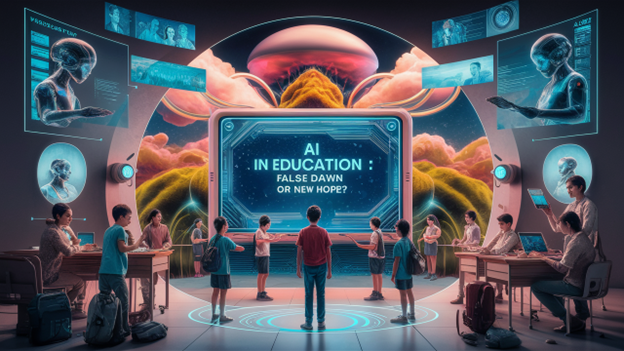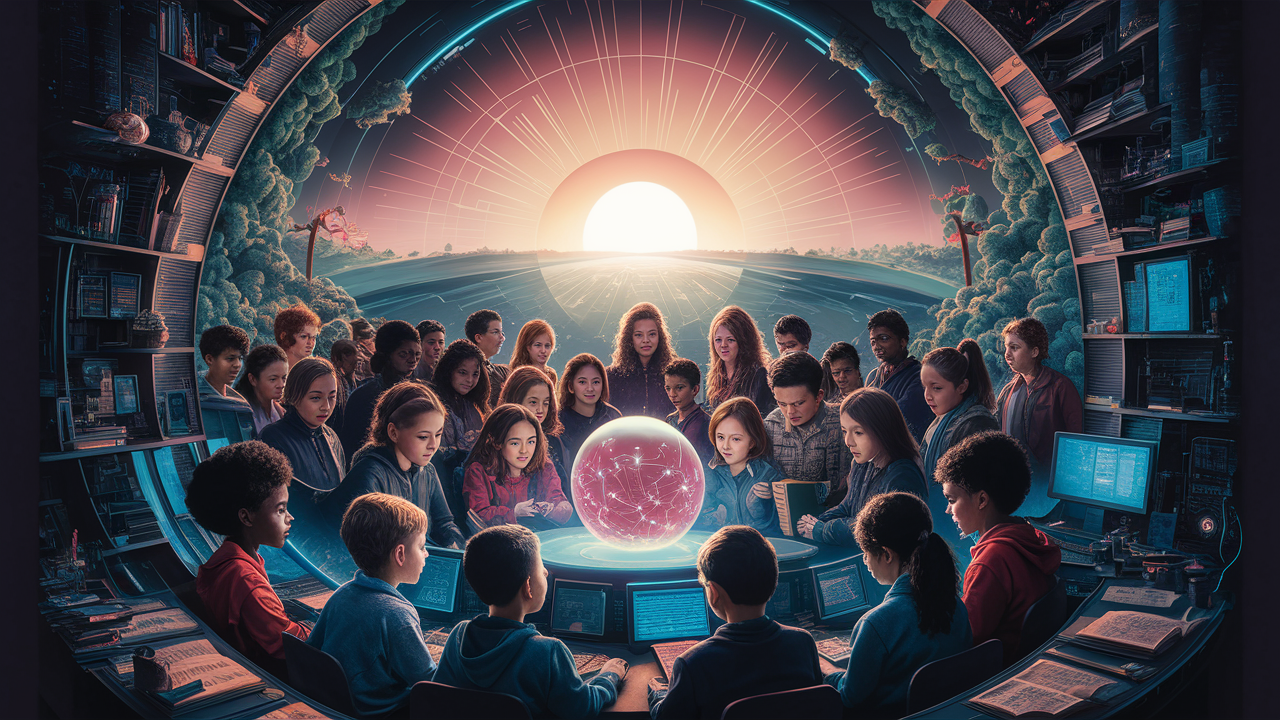

Artificial Intelligence (AI) has firmly entrenched itself in the fabric of our daily lives, transforming industries and reshaping how we interact with technology. In the realm of education, AI's presence is both a topic of excitement and apprehension. The question lingers: is AI in education a false dawn, promising more than it can deliver, or a beacon of new hope, heralding a revolution in learning?
Anyone who has used Generative Artificial Intelligence (GenAI) to any extent is likely to identify the opening paragraph as written by a GenAI tool, ChatGPT in this instance. From my tinkering with GenAI, this is my position on it: it’s not bad, but it lacks creativity, imagination and most importantly, contextual awareness (very much like the opening paragraph). In short, it works, but it’s not great.
I could certainly have spent more time refining the article with generative AI. The only thing I gave the AI systems was a title, generated by good old-fashioned human intelligence. Continued prompting and providing context should have allowed me to engineer the article so that it becomes contextualised. This would make it better, but I am not entirely convinced whether it would ever hit home the way I want this article to hit home…

That said, GenAI has unlocked a whole new world of potential. That potential is unlocked the minute you realise that it is a tool that helps you get there instead of a tool that does the job for you. Think of a screwdriver vs an electric screwdriver. Both get the job done, but the electric one makes it easier and faster. But, like any good handyman will tell you, you never only carry an electric screwdriver. There are times when a bit of elbow grease is the order of the day. Remove the human, however, and no screw is screwed.
Early in 2023 (after ChatGPT’s release in November 2022), it felt like a new AI tool was being released almost daily. My initial optimism for the incredible impact these tools could have on education was quickly dampened by the realisation that a lot of its power is hidden behind a paywall. A paywall is a term coined to describe the requirement of paid-for accounts to access more advanced features in digital tools. These AI tools offered a few uses before requiring you to pay for it, a payment based on United States spending potential.
This simply doesn’t work in the South African context. Our focus is still, understandably, on infrastructure needs and we are still some ways away from realising the value of these paid-for accounts. Realistically we also can’t afford licenses priced for first-world countries. Thus in early 2023, I was quite despondent in the realisation that many of these great AI tools would be available to only a select few, further exacerbating the issue of the digital divide and driving inequality.
Suddenly, things shifted. In the EdTech space, we are incredibly lucky that not all of it is driven by corporate greed. There still seems to be an element of care and consideration for learners, an almost philanthropic spirit lingering around. Towards the end of 2023, a lot of these paywalls suddenly seemed to be coming down. Even the paywalls that are still in place, were significantly lowered, offering real opportunities for developing countries to access advanced features.
Quizizz, for example, initially had its Quizizz AI tool behind a paywall. It was incredibly frustrating watching videos explaining amazing new tools and knowing that we wouldn’t realistically be able to use them in the majority of our schools. Now, while they still have premium features available for paid-for accounts, a lot of the AI-enhanced features are available for free. For example, the Quizizz Chrome add-on embeds a button on your browser which can create AI-generated quizzes for a website, document, presentation and even YouTube videos. And it’s entirely free.
There are many other examples where the AI tools for education that were initially only accessible to the well-to-do are now being made available for free. This makes me very hopeful that we could see a real impact. Generative AI could drive the democratisation of knowledge and information which was part of the early promise of the GenAI hype machine at the start of 2023.
What gives me even more hope is how accessible Generative AI is becoming. With Meta AI now available in WhatsApp, Facebook and Instagram, it has effectively become accessible on the go, in our pockets. This brings it much closer to the average user and no longer only the tech enthusiast. Add to that the relatively low data usage of text-based GenAI and low costs of mobile WhatsApp bundles and we could see the digital divide start narrowing.
ChatGPT opened Pandora’s box and we’re yet to see what fully emerges. While I am still optimistic about the potential impact of AI, we should tread carefully. The severe societal impact of social media showed us the dangers inherent to a far-reaching disruptive technology if left unchecked. AI has the potential to cause even more havoc if we do not consider the ethical and moral issues surrounding it.
We cannot afford not to face the question of AI in Education head-on. We should all be talking about it, tinkering with it and considering how it could impact our classrooms. We are only 16 months into this rollercoaster and I, for one, can’t wait to see where it takes us.
Learn more about Teacher Professional Developments such as AI and so much more: https://bit.ly/m/wcedtpd
Jaco Van Niekerk
Deputy Chief Education Specialist: Teacher Professional Development
Do you have an educational app, video, ebook, course or eResource?
Contribute to the Western Cape Education Department's ePortal to make a difference.


